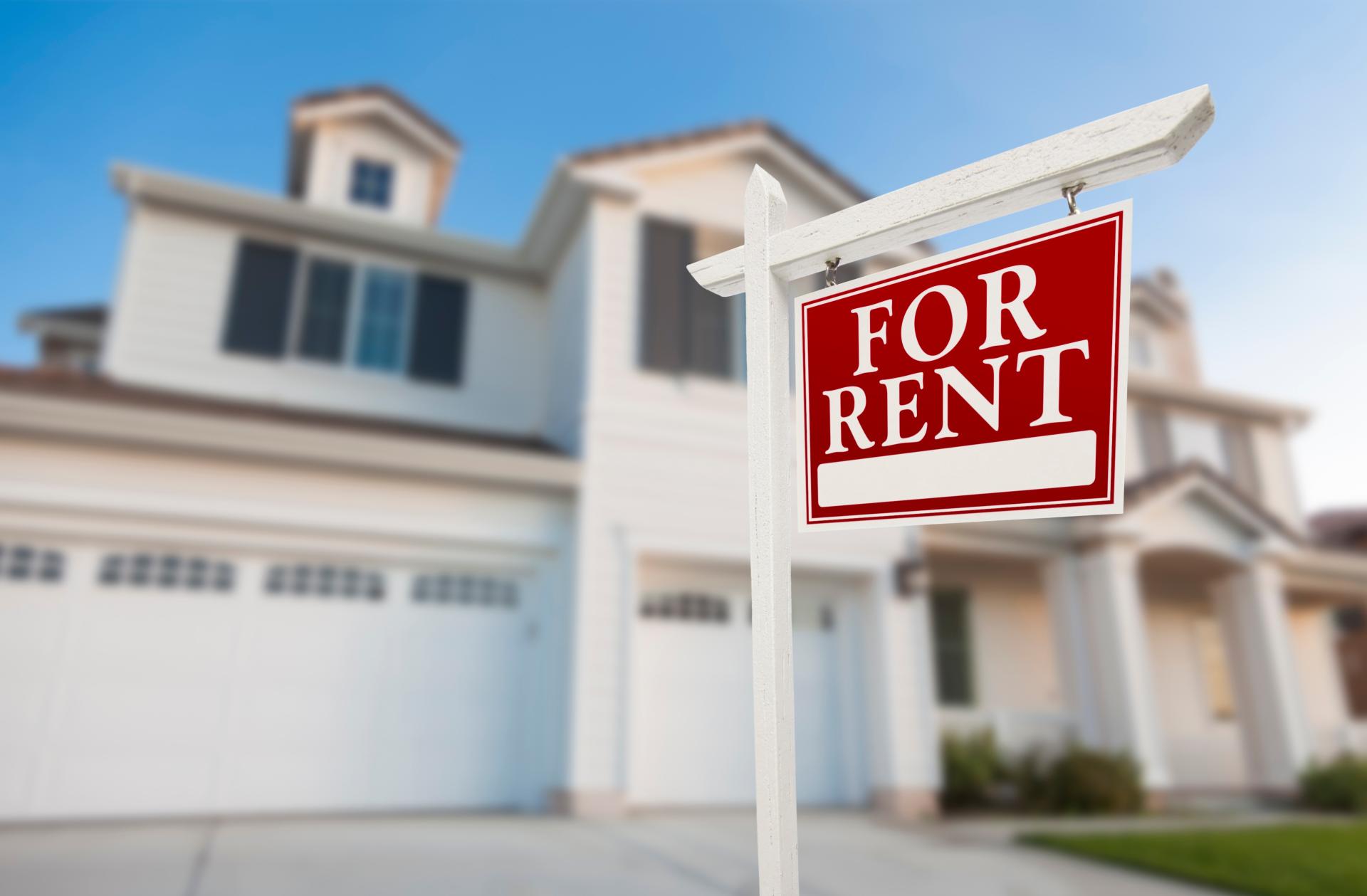
NSW Rental Commissioner Trina Jones talks fairness, quality and affordability in renting
In August 2023 the NSW Government appointed Trina Jones as New South Wales’s first State Rental Commissioner, a role that is positioned within the NSW Department of Fair Trading. In this Viewpoint we speak with Trina about the challenges and ambitions of her new role.
23 Oct 2023
What does a Rental Commissioner do?
‘My primary role as the Rental Commissioner is to be a voice for renters; to strengthen renters’ rights and to drive change from a policy and legislative perspective that can ensure that we have a more fair and balanced rental market,’ says Trina.
It’s early days, but what are your ambitions for the role?
‘I've got a vision for the change I want to facilitate and that covers three key outcome areas: fairness, quality and affordability. The way that I’ll do that is by working with others, and not pitting renters and landlords against one another. They are dependent on each other for a healthy rental market and for ensuring the supply of quality and affordable homes. I really want to be able to facilitate working together, and ensure that we can drive change based on rights and responsibilities and a balanced approach.’

What are the challenges for renters in NSW?
‘From the perspective of renters, one of the biggest challenges that we have right now is renters have limited choice and control over the homes that they live in, with limited ability to exercise their rights under the law because of the fear of no grounds eviction.’
‘From the housing market perspective, we know that we have more people who want homes than homes that are available, so demand is outstripping supply. And also, the type of supply is not keeping up with the demand. In New South Wales, there’re over 56,000 people on the social housing waiting list, many of whom wait in the private rental market and many of those are under significant financial stress—about 35 per cent of renters are in financial stress right now.’
‘So, we also have to think about the supply of social and affordable housing. How do we do that in NSW and places like Sydney, which is a very expensive by world standards? How can we build partnerships between community housing providers, private developers, the Government and community to deliver the types of housing that meets the needs of local communities? And around affordability, how do we get there?’
‘Well, we get there by having the right policy conditions and by working together to ensure that we have delivery of housing for all.’
There are a number of early priorities for the Rental Commissioner to reform, what are they?
‘Rental reform is another big issue I’m very keen to tackle.’
‘I'm trying to focus on priority issues that can get the biggest outcomes for tenants. We know that the Government made a series of election commitments and is being widely supported by the community to make changes around no grounds eviction and the ability to have pets. Those are priority areas of action for me for the first in a few months in my role.’
‘One of the opportunities that I have right now is we had a major consultation with our community around rent and reform. We had over 16,000 responses for our survey and 400 long form submissions. The responses have been from renters, property providers, real estate industry professionals, advocates, law representatives, legal representatives. This has enabled me to come in new with a very strong understanding of what's important to the community on issues of renting and reform. People are asking us to make changes around helping them feel like renting is fair as well as helping them to ensure that we can fit certain quality standards around minimum standards in the property, as well as energy efficiencies, as well as affordability.’
‘And that's why those outcomes around “fairness, quality and affordability” are front of mind for me, I'm using them to identify where we can take action for change. One part of that will be law reform—we will go to seek out legislative change to strengthen rights—but it will also be education, it will also be building partnerships, it will also be bringing all the resources around the table and working smarter together for greater impact.’
How does the Rental Commissioner work with private rental sector?
‘Wherever there is a residential tenancy—whether that's a boarding house, a block of strata-title apartments or a free standing home, whatever that might be—if you're involved in the provision or the receipt of residential tenancy then expect me to want to work with you, because we've got to work together to get the greatest impact.’
‘Property providers, landlords, real estate agents, all of the industry are critical stakeholders in ensuring that we can get the balance right in the rental market and I will be working alongside those, and renters, to make sure that any changes that we make are ones that will strengthen the rental market and not make it worse. We understand there's a very delicate balance right now in terms of supply and also there's financial pressures for landlords. I'm weighing up all of those things and ensuring that any recommendations that are made are done so in design with all of the relevant stakeholders. This is about people's lives and their livelihoods, to get the balance right we need to work together.’
How will your role work with the Commonwealth government and other states and territories?
‘I strongly welcome the signals from the Commonwealth Government around an agenda for renters. Having a national voice on this issue helps to assure renters that we are working towards change, but it also helps us to standardise some of the differences across different jurisdictions and states.’
‘One of the things that I'm doing is having regular meetings with the Victorian Residential Tenancies Commissioner as a mini community of practice to share insights and understandings about what can work well, to share ideas and also to identify opportunities for change.’
‘It also helps us to link the policy agendas. When we think about the housing and homelessness strategy, there's a great opportunity there to reflect the needs and intersections with renters. There's also opportunities to look at the Housing Accord and the investment in social housing, investment that's coming from the Commonwealth to the state governments.’
Raising the quality standards of rental housing
One major challenge that Trina is facing is that many individuals are forced to compromise on the quality of their rental housing which leads them to living substandard living conditions, such as living in caravan parks, boarding houses or in overcrowded conditions.
‘I think there's real opportunity to ensure minimum standards are reached under the Residential Tenancies Act; to ensure that we have quality standards, not just in how we build properties but in how people live in them, particularly in the lower end of the market,’ says Trina.
Raising the minimum standards of rental housing is vital, but it can have unintended consequence if landlords choose to not to upgrade their low-quality rental housing properties (often referred to as marginal housing) up to the legislated standard and withdraw properties from the rental market. It can lead to previous tenants being forced to move into housing that they really can’t afford (and therefore face greater rental stress) or even becoming homeless.
‘Previously I was CEO of Homelessness New South Wales, so it's not lost on me what the implications can be when things go bad in the rental market. Having spent many years working in that side of things, I deeply understand why we need to protect for the most vulnerable and understand what the outcomes can be, including the very negative consequences for individuals, their families and our whole communities.’
‘People have to be protected to ensure that the properties they live in are of particular standards that won't put them at risk of harm, injury or death. Accepting a legal standard of quality for housing is no different to accepting it for your car; for a kind of entry level property—that could be your Toyota Corolla versus your Lamborghini—if you think about housing options, they still both need to be roadworthy.’
‘We have to make sure that our housing market, in our marginal housing market specifically, is “rentworthy”. We have to be able to ensure that people don't miss out on the safety protections, the quality protections, just because they're on the lowest income. Often they're the ones that are more at risk of health impacts and higher rates of deaths and higher rates of risk of mental health issues and other things. We should be protecting our most vulnerable. Our marginal housing can provide an affordable entry level product to the market effectively, but that home should still be of a standard that keeps the person safe and housed.’
What are the future issues for tenants and landlords in NSW?
‘A priority focus area for me into the future is improving energy efficiency standards in our existing rental properties, but also strengthening that energy efficiency in future buildings,’ says Trina.
‘There is also an opportunity for us to learn from the natural disasters and the impacts that we've had and ensure that we have sustainable, viable sound infrastructure into the future. The other challenges that we will likely to face into the future is we know that fewer people will own their home and, with our ageing population, many will be going into retirement without an asset and will be renting into their 80s.’
‘We have to make sure that we change our mindset, as a community, around renting being the place you go before you buy to a lifetime way that people live. It will require a different perspective on how we treat the rental market, how we treat renters, what types of leases that people hold, the types of ways that people can use their home, the types of functions of things like bonds, things like that. All of those things start to change if you're leasing a property for more than 10 years. And the relationships that can be strengthened and developed between property providers and renters is also something that we hope to build on.’
